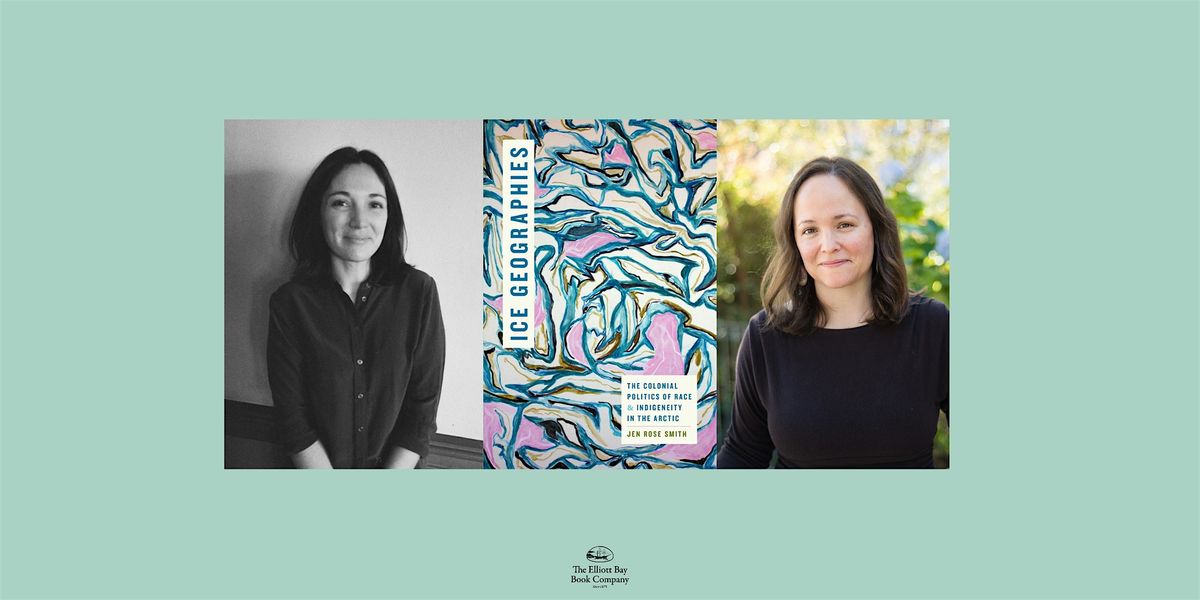
About this Event
About the Book
Ice animates the look and feel of climate change. It is melting faster than ever before, causing social upheaval among northern coastal communities and disrupting a more southern, temperate world as sea levels rise. Economic, academic, and activist stakeholders are increasingly focused on the unsettling potential of ice as they plan for a future shaped by rapid transformation. Yet, in , Jen Rose Smith demonstrates that ice has always been at the center of making sense of the world. Ice as homeland is often at the heart of Arctic and sub-Arctic ontologies, cosmologies, and Native politics. Reflections on ice have also long been a constitutive element of Western political thought, but it often privileges a pristine or empty “nature” stripped of power relations. Smith centers ice to study race and indigeneity by investigating ice relations as sites and sources of analysis that are bound up with colonial and racial formations as well as ice geographies beyond those formations. Smith asks, How is ice a racialized geography and imaginary, and how does it also exceed those frameworks?
About the Author
Jen Rose Smith is a dAXunhyuu (Eyak, Alaska Native) geographer interested in the intersections of coloniality, race, and indigeneity as read through aesthetic and literary contributions, archival evidences, and experiential embodied knowledges. She received her Ph.D. from UC Berkeley in Comparative Ethnic Studies and her Master's Degree from the same department, and holds a BA in English Literature and the Environment from the University of Alaska, Southeast. Her book Ice Geographies: The Colonial Politics of Race and Indigeneity in the Arctic is forthcoming from Duke University Press, and she has published in Environment and Planning D: Society and Space, Vogue Magazine, and The Geographical Journal.
About the Interlocutor
Jessica Bissett Perea is a Dena’ina [Alaska Native] musicologist and associate professor of American Indian Studies at the University of Washington. Her research centers critical Native American and Indigenous studies approaches to music, sound, and performance studies; Critical race, Indigeneity, gender, and feminist studies; Arts and activism in North Pacific and Circumpolar Arctic communities; and Relational studies of Indigenous and Black experiences in the Americas. Her first monograph Sound Relations: Native Ways of Doing Music History in Alaska (forthcoming 2021) will appear in the “American Musicspheres” series published by Oxford University Press. In fall 2021 she will co-teach “Radical Storywork: Performing Food Sovereignty through Inuit Fermentation Culture” with Professor Maria Marco, which advances Inuit knowledges and performing arts processes as a means to unsettle and expand dominant modes of knowledge production in food science research.
Pre-order your copy of Ice Geographies here.
Event Venue & Nearby Stays
The Elliott Bay Book Company, 1521 10th Avenue, Seattle, United States
USD 0.00












